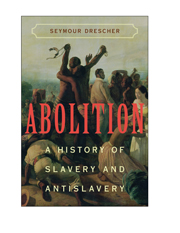Book contents
- Frontmatter
- Contents
- Preface
- PART ONE EXTENSION
- PART TWO CRISIS
- PART THREE CONTRACTION
- 9 British Emancipation
- 10 From Colonial Emancipation to Global Abolition
- 11 The End of Slavery in Anglo-America
- 12 Abolishing New World Slavery – Latin America
- 13 Emancipation in the Old World, 1880s–1920s
- PART FOUR REVERSION
- Index
- References
9 - British Emancipation
Published online by Cambridge University Press: 04 August 2010
- Frontmatter
- Contents
- Preface
- PART ONE EXTENSION
- PART TWO CRISIS
- PART THREE CONTRACTION
- 9 British Emancipation
- 10 From Colonial Emancipation to Global Abolition
- 11 The End of Slavery in Anglo-America
- 12 Abolishing New World Slavery – Latin America
- 13 Emancipation in the Old World, 1880s–1920s
- PART FOUR REVERSION
- Index
- References
Summary
By the beginning of the second quarter of the nineteenth century, “free soil” no longer stopped at the Atlantic edge of Europe. The world's most powerful economic and naval power had launched a policy to interdict the Old World supply of slave labor. The great powers of Europe and their newly separated states had all assented, if often insincerely, to prohibiting slave trading from or to their shores. A partial network of treaties provided the basis for the seizure of slave ships and the disposition of the captives in various enclaves in Africa and the Americas.
Despite all this, antiabolitionist skeptics still appeared to have correctly assessed the limits of the project. The volume of the transatlantic slave trade between 1826 and 1850 diminished by only 5 percent. In the New World the institution appeared never to be more vibrant. By 1850, there were probably five and a half million slaves in the Americas, more than at any point in the history of the Americas. In the world of Afro-Asia, there were probably more than three times that number of slaves, not counting varieties of bound laborers in Eastern Europe and concubines, who were still more numerous in parts of the Eastern hemisphere.
In terms of tropical production, the combined impact of British abolitionism on the Atlantic slave trade, revolutionary emancipation in the French colonies, and legislated emancipation in the British colonies, altered the distribution of slave-produced cash crops in the West Indies.
Information
- Type
- Chapter
- Information
- AbolitionA History of Slavery and Antislavery, pp. 245 - 266Publisher: Cambridge University PressPrint publication year: 2009
